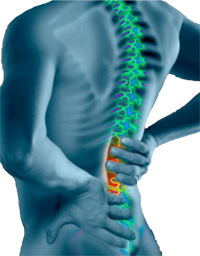 Had a Rotator Cuff MRI? 4 Things to Know Before Surgery
Had a Rotator Cuff MRI? 4 Things to Know Before Surgery
There are times when I, as a rotator cuff doctor in Mesa, Arizona, wish MRI and CT scans were never invented. I can’t tell you how many times I’ve had to explain to patients that what was found on the MRI that his or her PCP ordered has absolutely nothing to do with the pain currently experienced.
Low back, knees and shoulder seem to be the worst, as any Mesa, AZ rotator cuff doctor can attest. I certainly have ranted in the past about the massive overuse of technology and medical imaging in medicine today. As strange as it may be, the pathway is very clear: Having a MRI makes that person more likely to undergo epidurals and surgery. Having an epidural leads to surgery as well. So, unless you’re willing to go under the knife, don’t even consider an MRI. The ONLY time to order advanced imaging is when your provider thinks that there is a high likelihood that the information obtain will make an important change in your treatment plan.
Imaging is not used just to confirm what a physician has already determined. It’s really not that hard to determine if someone has a disc problem or if someone with advanced arthritis is dealing with spinal stenosis. If signs point to a disc problem, why on Earth would you waste the time and resources to order an MRI at that point? Just treat the condition as if it’s a disc (which, in our office, would involve flexion / distraction technique).
Now, if you don’t respond within expected timeframes (30 days is a safe bet) or if your condition worsens while getting treatment, then imaging becomes more important to see if some underlying factor is affecting your response to treatment. Our rotator cuff doctor in Mesa, AZ is pretty conservative when it comes to ordering advanced imaging. I’d say that I personally order an MRI less than a handful of times per year. However, it seems like at least this same number of times each month we’re requesting the results of an MRI or CT scan that was ordered by another provider and probably shouldn’t have been.
This is when I have to battle against the perception that a MRI or CT scan is exact and answers all questions. Far too often, a MRI comes back with some type of disc bulge, and yet the patient has absolutely no signs that a disc is involved in his or her condition, as a rotator cuff doctor in Mesa, AZ can explain. Only rarely does an MRI ordered by another provider come back with valuable information that changes the treatment we’re doing in the office.
All this would be fine if MRIs and CTs didn’t come with significant problems beyond the cost. CT scans, despite still being handed out like candy (had a patient in yesterday whose son was given a head CT recently in the ER when an MRI would have been a better choice to look at the brain) have a tremendous amount of radiation exposure associated with them and have been linked to some 14,500 cancer deaths per YEAR. MRIs, as mentioned, begin the dangerous pathway towards more invasive treatment measures and surgery.
All of this brings us back to this particular study. Researchers looked at a group of postmenopausal women with NO shoulder pain and compared them with premenopausal women with no shoulder pain to see what there rotator cuffs looked like in an MRI. Here’s what they found:
- 8.9% had full-thickness tears (mainly localized in the supraspinatus tendon of the dominant side) in the postmenopausal group.
- Non-painful, full thickness tears in the premenopausal group was 3.1%.
- Women with tears were more likely to have higher BMI, higher fasting glucose and lower HDL cholesterol.
- Overall, higher BMI and lower levels of HDL cholesterol increased the risk of having a tear.
Wow! Quite a few take home messages. First, we need to see that a decent size chunk of females, both pre and postmenopausal, have complete thickness rotator cuff tears that are painless. I can’t tell you how important that little factoid is. Just because you see a tear on a MRI does NOT mean that this is the problem.
Second, lifestyle choices (as evidenced by cholesterol and BMI relationships) played a large role in the tendon damage. This isn’t really hard to envision since tissue healing and inflammation are going to be effected by the choices we make.
So, just because you have shoulder pain does NOT mean that you need to have an MRI (and X-rays are just short of worthless for shoulders anyway…) unless you have failed a course of conservative care, which, in my clearly biased opinion, would involve a Mesa, AZ rotator cuff doctor or chiropractor who does advanced soft tissue techniques…
What Should You Expect at Your First Appointment with Rotator Cuff Doctor in Mesa, AZ
Visiting a new healthcare provider can be a little intimidating. It’s said that knowledge is power. When you know what to expect at your first appointment with a rotator cuff doctor in Mesa, AZ you can relax and make sure you provide the right information.Your Mesa, AZ rotator cuff doctor wants to alleviate your symptoms as quickly as possible, but they cannot do that without a clinical exam.
When you make your appointment, your rotator cuff doctor in Mesa, AZ may discuss his or her general approach, philosophy and your symptoms. This does not take the place of the exam during the first appointment. Once you’re in the office, your appointment should consist of these components.
- History and symptoms
Be prepared to discuss how your pain started. You’ll want to describe your pain, is it sharp or dull. Does it come and go or is it constant? Where is your pain? Does anything make the pain better? What types of things make it worse? Your doctor may also want to know about other medical conditions and prior injuries. You may need to provide information on your family’s medical history. You should also bring a list of current medications and your healthcare providers.
- The clinical exam
Your Mesa , AZ rotator cuff doctor may perform some of the same tests your primary doctor does, such as blood pressure, pulse, respiration and reflexes. In addition, your doctor will want to assess the range of motion on your affected body part – in this case the shoulder area. He or she may check muscle tone and strength. You may be required to move around to demonstrate movement of your shoulder or another area. .
- Diagnostic tests
Your doctor may request x-rays or other imaging tests to help provide information about your body. If you have imaging from an MRI or x-rays taken previously, it can be helpful to send that information to your chiropractor before your appointment.
Diagnosis and Treatment
At the end of your appointment, your LifeCare Chiropractic rotator cuff doctor will explain your diagnosis and discuss whether chiropractic treatment, regenerative medicine, or another type of care will help your condition. Before treatment begins, you should receive information on an individualized treatment plan and how long it will last.
As part of your treatment plan, you should get information on which treatment modalities will help and why. Your doctor may also give you strengthening exercise or education to improve your symptoms at home. He or she may also suggest other treatment options, such as massage or heat and cold application.
To learn more about how a rotator cuff doctor in Mesa, AZ may be able to help you, call LifeCare Chiropractic.
Client Review
“Had a great experience. Staff is friendly and knowledgeable. I am looking forward to seeing great results on my treatment. I’d highly recommend LifeCare chiropractic.”
Francisco C



 Had a Rotator Cuff MRI? 4 Things to Know Before Surgery
Had a Rotator Cuff MRI? 4 Things to Know Before Surgery